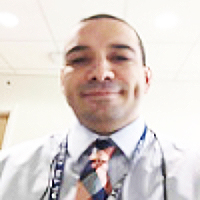The Impact of Telerehabilitation on Physical Therapy Services in Rural Communities
Published on: 3rd May, 2024
Telerehabilitation is a transformative approach to physical therapy, revolutionizing the accessibility of healthcare in rural communities through the strategic use of Telecommunications technology. This novel approach has the potential to significantly enhance the efficacy of healthcare delivery, particularly considering the critical challenges posed by geographical isolation and resource scarcity. This paper explores the multifaceted benefits of Telerehabilitation, including increased access to care and reduced costs, alongside the challenges of technological barriers and privacy considerations. It provides a comprehensive overview of Telerehabilitation’s impact on rural healthcare, emphasizing its capacity to optimize patient outcomes and proposing strategies for effective implementation. The findings of this study suggest that the use of technology to deliver telecare is a key means of delivering equitable healthcare to underserved populations, a promising way to improve access to rural physiotherapy services address the challenge of telehealth resources, and promote the long-term sustainability of rural Telerehabilitation practices.
Development and Evaluation of a mHealth app - (ReMiT-MS app) for Rehabilitation of Individuals with Relapsing-remitting Multiple Sclerosis - A Mixed Methods, Pragmatic Randomized Controlled Trial - Study Protocol
Published on: 3rd July, 2024
Background: Delaying or slowing functional loss is a valuable goal of Multiple Sclerosis (MS) rehabilitation. The mHealth app-based exercise rehabilitation intervention is expected to overcome barriers related to routine care of MS. Due to the ubiquitous presence of smartphones, they offer an excellent opportunity for remote monitoring, scheduled interaction with experts, and instruction for exercise in a home environment. Challenges in MS routine care include forgotten rehabilitation steps, limited access to local MS experts, and internal barriers such as low health literacy, mobility limitations, and fatigue, alongside external obstacles like service availability and transport costs.Objectives: To develop a mHealth app that is user-centered and context-specific for rehabilitation of MS symptoms, and to evaluate its clinical and cost effectiveness in individuals with RRMS.Methods: The proposed research will be conducted in two phases; the first phase (Phase 1a) will be focused on the development of mHealth app content (ReMiT-MS app trial I). The pilot phase (Phase 1b), where a prototype of the application will be designed, and its usability will be evaluated. Finally, in the second phase (Phase 2), the clinical and cost-effectiveness of the ReMiT-MS app for the rehabilitation of individuals with RRMS will be evaluated (ReMiT-MS app trial II).Conclusion: The findings of this proposed trial may provide a telerehabilitation platform for individuals with RRMS in a resource-limited setting and establish a low-cost healthcare delivery model. In addition, the results of this research work might open a new window in healthcare delivery in India and similar settings.Trial registration: CTRI/2022/09/045266 [Registered on 06/09/2022]
Experiences of Consumers on the Health Effects of Fake and Adulterated Medicines in Nigeria
Published on: 4th July, 2024
Medicines are used to cure and treat ailments, relieve or eliminate disease symptoms, and slow down the disease process. Any attempt to disrupt this natural medicine process, using falsified medications, spells doom to a consumer of such medication. The challenge of fake medicines is a global one and affects developing and developed nations and currently assumes great significance as a result of globalization challenges, which have flattened the entire world, hence removing barriers to the movement of products and services. The cross-sectional survey was conducted, using six local government areas of Anambra State in South-East Nigeria, namely Awka, Nnewi, Onitsha, Aguata, Ogbaru, and Anaocha, among adults aged 18 years and above. A minimum sample size of 500 was calculated and stratified sampling was employed to select respondents in order to ensure that various population groups, the upper class, middle class, and lower class were represented.This research has shown that falsified medicine is an evil wind that blows nobody any good. It negatively affects every aspect of the citizen’s livelihood, ranging from their health, which manifests as treatment failures, deformities, loss of life to death, to loss of confidence in the healthcare providers, revenue losses to individuals, healthcare providers, manufacturers, and finally corruption of the genuine medicines supply chain with fake and adulterated medicines.The study has clearly shown the experiences of residents of Anambra State, South-East Nigeria with fake and adulterated medicines and also services as a wake-up call to medicines regulators like NAFDAC, PCN, the PSN, and Federal Ministry of Health to declare a state of emergency on the fight against fake and adulterated medicines and make enabling laws that are punitive enough towards the fight against this scourge, so that the healthcare and well-being of Nigerians would be assured at all times.
Physiotherapy Undergraduate Students’ Perception About Clinical Education; A Qualitative Study
Published on: 22nd November, 2024
Background: Clinical education is an important component of physiotherapy education programs. It provides insights to the students in the fields of physiotherapy practice, develops leadership, and enhances their clinical skills in patient assessment, examination, diagnosis, treatment, planning, and intervention selection. The dimension of physiotherapy education is in the developing phase in Nepal. For further growth, the experience and the perception of the students are very important. Through this, the facilitators and barriers in physiotherapy clinical education need to be recognized. Therefore, this study aimed to explore the facilitators and barriers in physiotherapy clinical education in Nepal from a student’s perspective.Objectives: The main objective of this study was to identify the perception of physiotherapy undergraduate students about their clinical education and to find out the facilitators and barriers in clinical education.Methods: A qualitative research using focused group discussion was conducted. Ethical considerations were taken from respective departments and IRC approval was taken. BPT 3rd year, 4th year, and intern students of KUSMS were called to participate in the study. After the consent from the participants, focus groups of 6 participants (2 participants from each 3rd year, 4th year, and intern) were formed. In five FGDs, data saturation was observed and no further FGDs were conducted. FGDs were collected with audio tape recordings. The data were transcribed verbatim and translated into the English language. Then data coding was done and themes and sub-themes were generated from the codes.Results: Through the transcribed and translated data, seven themes were generated which were clinical education, student expectation, student attitude and behavior, roles and responsibilities of clinical educators, exposure, resources, and miscellaneous. These headings explained the perception of facilitators and barriers.Conclusion: The facilitators and barriers to physiotherapy clinical education were identified through student’s perspectives. These findings should be considered while preparing the guiding document for clinical education to enhance the quality of education.
Exploring the Potential of Medicinal Plants in Bone Marrow Regeneration and Hematopoietic Stem Cell Therapy
Published on: 31st January, 2025
Blood cell production through hematopoiesis within the bone marrow serves both to maintain blood equilibrium and to respond to tissue injury and infectious demands. Hematopoietic stem cell (HSC) therapy developments have revolutionized medical treatment approaches for anemia leukemia and bone marrow failure caused by chemotherapy or radiation exposure. The therapeutic compounds present in medicinal plants have traditionally supported blood health and researchers now understand these plants could help regenerate bone marrow tissue. The analysis investigates how phytochemicals affect HSC proliferation and differentiation while supporting HSC survival. The medicinal plants Panax ginseng, Astragalus membranaceus, and Curcuma longa receive special attention for their documented ability to enhance hematopoiesis in preclinical and clinical settings. This review examines the challenges that include standardization issues, toxicity concerns, and regulatory barriers alongside future perspectives about combining plant-based therapies with traditional treatments to improve bone marrow recovery and health results.
Fostering Pathways and Creativity Responsible for Advancing Health Research Skills and Knowledge for Healthcare Professionals to Heighten Evidence-Based Healthcare Practices in Resource-Constrained Healthcare Settings
Published on: 5th February, 2025
Globally, evidence-based healthcare practices are the most dependable framework for effective healthcare decisions and practices. In all nations, financial resources, people, and time are always insufficient. Healthcare professionals should recommend healthcare interventions that have been proven to be safe, effective, and affordable. All healthcare professionals must be creative to be involved in the creation and compilation of trustworthy evidence to support the decrease in morbidity and mortality of communicable and non-communicable diseases, particularly in developing nations. Regretfully, most developing nations still exhibit weaknesses and barriers to promoting health research and evidence-based healthcare. Evidence indicates that developing countries contribute 1% - 2% of health research activities to address global health problems and challenges. As a result, many individuals in these nations continue to have below-average health conditions. The lack of creativity, innovation, and motivation to gain health research competencies for healthcare professionals causes all these issues. Creativity and innovation are the foundations for the effective implementation of evidence-based healthcare. Surprisingly, no researchers have explored how creativity and innovation heighten evidence-based healthcare practices. The primary objective of this project will be to foster pathways and explore the creativity that advances health research abilities among healthcare professionals to improve evidence-based healthcare practices in resource-limited healthcare settings.
Euthanasia: Growing Acceptance amid Lingering Reluctance
Published on: 14th February, 2025
Euthanasia has long been a contentious topic. Societal acceptance and legalization of euthanasia have increased over the past decades but still lag behind that of physician-assisted suicide (PAS). Euphemisms such as “death with dignity” have facilitated the integration of PAS into end-of-life discussions with reduced stigma. We hypothesize that the persistent use of the term “euthanasia” hinders open, compassionate communication about this practice, particularly among healthcare professionals who adhere to the ethical principle of nonmaleficence. To address this issue, we propose the adoption of euphemisms, such as “eumori,” meaning “good death,” similar to the terminology used in (PAS). These proposed terms mitigate the negative connotations associated with euthanasia. This approach serves as an initial yet significant step toward reframing euthanasia within the context of end-of-life care. Further research and dialogue are essential to explore and address other barriers to broader acceptance of euthanasia as a viable end-of-life option.
Experience of Anesthesiology Residents in the conduct of their Research during Residency Training at Vicente Sotto Memorial Medical Center
Published on: 26th February, 2025
Introduction: Research provides a framework for Anesthesia residents who are critical thinkers who approach clinical practice with an open mind. The goal of this study was to determine current attitudes regarding performing research during residency as well as perceived obstacles to doing so. A resident physician should be ready to face the challenges of the growing technology, tons of journals published in different portals, and increasing sophistication of the health care delivery system. Practice-based learning, systems-based practices, and medical knowledge are the vital core directly affected by strong research skill set. Methods: The study was done through a survey of all 15 current residents in Vicente Sotto Memorial Medical Center Anesthesia Resident. They answered a 13 self-administered survey, which was adopted from previous similar research. Data was collected for 1 week to give time to the busy schedule of the resident. Results: Respondents cited that the lack of time in balancing clinical and research responsibilities is the most common obstacle encountered by 86.7% of respondents. Researchers feel they have inadequate research skills and a lack of time in balancing responsibilities between family and work was among the most common answers by the respondents. 2nd prevalent barrier to research during residency was a lack of mentoring. Conclusion: The top barriers to research are lack of time and inadequate access to research mentors. These barriers can be addressed to optimize the current research environment for residents. Anesthesia residents identified several critical aspects that they believe are obstacles to research. These findings can be used by programs to overcome hurdles and increase the inclusion of research into residency training.
Survey on the Underutilization of Forensic Expertise in India: Examining the Dominance of Law Enforcement in Evidence Collection and Investigations
Published on: 22nd May, 2025
Forensic science can significantly enhance criminal investigation equity and accuracy. In India, though, forensic experts remain underutilized as case investigations are predominantly performed by law enforcement agencies. This article documents findings of a survey of 230 respondents half of them being forensic experts and other non-forensic respondents like law enforcers exhibiting a wide perceptual gap. While forensic experts emphasize the need for independent intervention so that objective outcomes would be achieved, police respondents strongly favor conventional investigation methods. Systemic barriers like training constraints, availability limitations, and formalization of processes also discourage effective integration of forensic science. The research highlights efforts at policy reform that accord forensic experts a more active role, thereby strengthening the credibility and objectivity of India’s justice system.
Impact of Microplastics on Human Health through the Consumption of Seafood: A Review
Published on: 14th June, 2025
Microplastics (MPs) pose a significant risk to human health, particularly through seafood consumption. Once ingested, MPs can spread from the digestive system to other organs via phagocytosis and endocytosis, leading to toxicological effects. Accumulation of MPs in tissues causes swelling, blockages, oxidative stress, and Cytotoxicity. Studies show MPs alter metabolism, disrupt immune function, and contribute to autoimmune diseases. Chronic exposure has been linked to neurotoxicity, vascular inflammation, and increased cancer risk due to DNA damage. MPs can cross biological barriers, including the placenta, affecting fetal development. Additionally, they serve as vectors for pollutants and bacteria, further complicating health risks. MPs in the bloodstream can trigger inflammatory responses, endothelial adhesion, and red blood cell coagulation, leading to cardiovascular complications. In vitro studies indicate MPs impair renal function and cause long-term inflammation in distal tissues. Moreover, oxidative stress caused by MPs plays a critical role in carcinogenicity. Despite growing evidence of adverse health effects, further research is necessary to understand the full impact of MPs’ exposure on human health and develop effective mitigation strategies.




